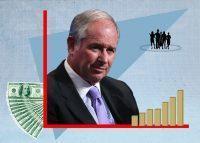Until about a decade ago, Blackstone Group derived most of its profits from traditional private equity. But following a dramatic expansion into real estate driven by CEO-in-waiting Jonathan Gray, massive property deals are now the company’s calling card.
With an estimated real estate portfolio of $325 billion, Blackstone is now the world’s largest real estate company, according to Fortune.
Of that total, $163 billion comes from Blackstone’s own real estate equity capital — which has multiplied eightfold since the company went public in 2007 — while the rest is financed with debt.
As rising property values and a slowing economy have made it harder to find high-yielding deals, Blackstone is increasingly investing in unglamourous assets such as warehouses and rental properties in the world’s “knowledge centers” — rapidly gentrifying cities like New York, London, Berlin and Stockholm.
Read more



Blackstone’s real estate investments are classified into two basic types — riskier “opportunistic” funds with average annual returns of around 15 percent, and more conservative “Core+” funds with returns around 10 percent.
The firm’s relationships with large institutional investors have given it a significant advantage when pursuing massive deals. Last year, it closed on a record $20.5 billion opportunistic fund known as Blackstone Real Estate Partners IX (BREP IX), which co-invested in the firm’s $18 billion industrial portfolio acquisition from GLP last June.
“If a $20 million office building is for sale, you might have 20 bidders,” Blackstone’s head of Americas acquisitions Tyler Henritze told Fortune. “When it’s a $20 billion deal, the competition is a lot more limited.” [Fortune] — Kevin Sun